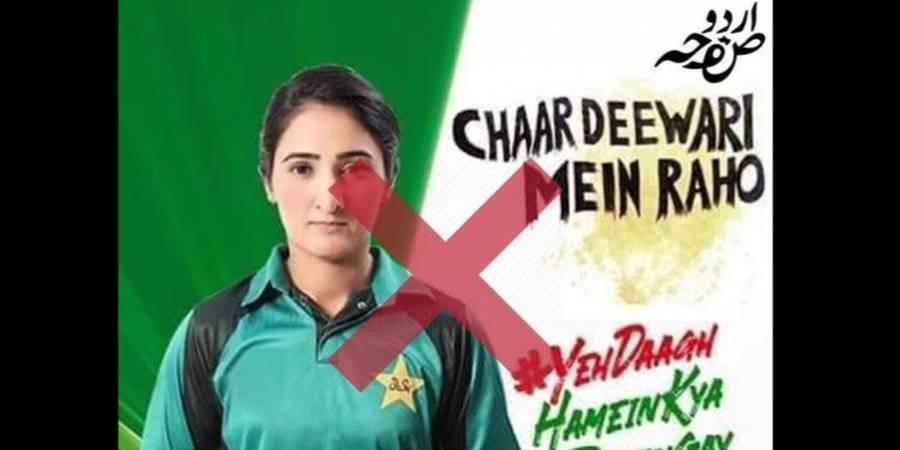Pakistan has emerged as one of the most discriminatory countries in this age and time. Gender stereotyping is extremely rampant in the country with the citizens upholding the stereotypes as if the entire country’s honour solely depended on it. In a latest instance, an international detergent brand, Ariel soap, owned by US-based Proctor & Gamble, has come under the radar for attempting to break the gender based stereotypes affecting women in the country through simple advertising.
In the advertisement, a bunch of women are shown, representing different honourable professions such as a journalist and a doctor. They are seen pushing dirty sheets hanging on a clothesline off the screen, which are printed with several statements which highlight the oppression of women in Pakistan, including the question “What will people say?” The advertisement ends with a shot of the Pakistan women’s cricket team captain, Bismah Maroof, saying, “Stay within the house… these are not only sentences but stains”. The advertisement, in its own way, encourages women to clean off the stains in the society that hinder them from pursuing their dream vocations.
While this has been a laudable move on the part of Proctor & Gamble, the citizens in Pakistan are horrified. The conservatives have taken to social media to express their disdain using the hashtag “#BoycottAriel”. Several have also called for Pakistani regulators to have the advertisement officially censored and removed.
https://twitter.com/Danishnisar21/status/1142292556845178881
https://twitter.com/zubairbukhari92/status/1142115604150857728
https://twitter.com/Ali91726926/status/1143153063240306689
https://twitter.com/shanukhan551/status/1142164599434858496
https://twitter.com/SabaKhan18sabs/status/1142253901443469314
In these tweets, people’s outrage over their Islamic values somehow being violated by empowered women is clearly visible. The ad promotes empowerment of women outside domestic confines. It is emphasizing on their ability to work and achieve in the professional sphere. However, the citizens of Pakistan felt this was against their culture. By encouraging the women to work or represent the country in International sports, Proctor & Gamble is purported to have gone against the teachings of Islam and Allah. Apparantly, the attempt at redefining the women’s “domestic and social boundaries” is unacceptable for many in Pakistan.
This is just another proof of the women’s pitiable condition in Pakistan. According to the World Economic Forum’s “Global Gender Gap Report 2018”, Pakistan has been ranked second worst when it comes to gender equality. Out of 149 countries, Pakistan fared at 148th, among the bottom bracket of other Islamic nations including, Iran, Iraq, Saudi Arabia, Yemen and Egypt.
Even after having such a disgraceful ranking, Pakistan is not interested in shedding the ravaging discriminatory trait. In the name of the religion, women have suffered under the patriarchal society and have fought for their basic rights in the past several decades.
The honour code in the country has led to oppression of the women due to which not just the women, but the entire country is suffering. Women constitute 49% of the total population in Pakistan. If the 49% population is discouraged from doing productive work outside the home then the entire country’s economy and development goes down the drain; which is the reason that Pakistan is positioned at 150 on the Human Development Index.
This isn’t the first time the citizens of Pakistan have outraged over their established norms as far as the “women’s duties” are concerned. A ride-sharing app named Careem had released a lighthearted ad earlier this year which showed a runaway bride, and had captioned the image as, “If you want to run away from your wedding, book a Careem bike!” The critics had filed a legal petition against the ad, calling it an “unethical promotional campaign”.
The condition of women in the work space in Pakistan is quite deplorable. According to a UN report on Women’s Economic Participation and Empowerment in 2016, women constitute of just 26% of the labour force. This indicates that they seldom venture out and when they do, they face violence, discrimination and public harassment. Economic independence in Pakistan is the only thing that will help improve the women’s deplorable condition and hence, such positive advertisements should be encouraged rather than criticised.
